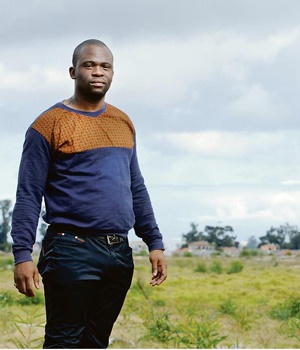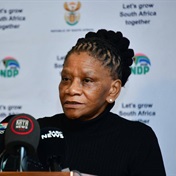
Not so long ago, land restitution was a topic the elders of black families grumbled about in passing.
But 21 years into democracy, young South Africans are feeling the need to reclaim parts of their history. In particular, they want their land back – and they want it now.
They need it for shelter, they want it for wealth – and because it was “theirs” to begin with, they say.
Not all of them know where their land is or if they even had any. But according to the young black urbanites we met, there is little doubt that land reform in 21st-century South Africa arouses strong emotions and a growing desire to restore the customs their elders held in high regard.
Ongama Madikane (26), an accounting honours student at Unisa, is one such person.
“As far as my family can trace, the Madikane name used to belong to people who worked and lived on a farm in the Eastern Cape in an area called Indwe. The farm belonged to a white family.”
Though many young black people do not know the specifics of their ancestral connection to the land, Madikane knows his family’s history in detail.
“When my grandmother got married and had children, she decided to migrate to the Western Cape in search of a better life. The first land owned by my family was bought by my grandmother with assistance from a white family she served until well into her retirement age.
“She had a small house in Nyanga East, Philippi, where she raised nine children, my mom being the sixth child.”
The family has since fanned out throughout the Western Cape, where many of them now have properties of their own.
“My family owns three separate farming areas around Blue Downs, each with their own livestock and land. My uncle wants to supply meat to big and small butcheries. My aunt already supplies fresh produce, as well as some livestock, to small shops. Another aunt also sells livestock.”
Madikane is unequivocal about why land should be returned to black South Africans.
“I say the land should be given back to the people of Africa not because I’m black, but because I have experienced what owning land can do to a broken soul – it gives it hope.”
Madikane lives with his parents in Jagtershof, Kuils River. His plan is to become a chartered accountant – and though he will not work on the land in the traditional farming sense, he wants to develop it for economic reasons.
He strongly believes the legacy of taking things away from black South Africans had a profound psychological impact.
“In the bigger picture, I believe white-owned land is stained with the blood, sweat and tears of my people. We have been denied much, but the ceiling is us being denied our own identity.
“We walk with our heads down on land our ancestors used to roam as kings and queens. Amandla wendoda akwi ntsebenzo yayo (where a man was judged by his ability and nothing else).
“In everything that was taken, sadly the land is the only thing that can be returned.”
However, Madikane is under no illusions this will fix all the problems.
“Unfortunately, owning land in this economy does not mean survival, nor does it alleviate the amount of suffering our people have endured. But it does afford us the foundation, the platform, for the black nation to redefine itself.”
However, Mpumelelo Tshabalala (26), who is a clerk of the Constitutional Court, has a different view.
“I would never consider myself a recipient of land. If I had to take land, I would feel very guilty about it,” she says.
Tshabalala adds that her brothers would probably have a “very different” view. But she is sticking to hers.
She has never lived on a farm, in a rural area or even in a township. Her parents are first-generation university graduates and the family has lived either in the US (while her father did his PhD) or in the suburbs of Johannesburg.
“I would feel guilty about claiming land because I have a lot of guilt about my own privilege as a black person,” she says.
Still, Tshabalala believes that those who have been dispossessed and can prove it should get their land back.
“The thing about a finite resource is that not everyone will be able to get a piece of it.
“I wouldn’t advocate for absolute reclaiming of the land, but rather for a needs analysis that looks at legal entitlement and the history of dispossession.
“I think there is a small group that didn’t get land taken from them. They are a minority, but they are there.”
Once a claim is proven, Tshabalala feels the legacy of abuse should end.
“From 1890, Cecil John Rhodes was the prime minister and he introduced the Glen Grey act, which had the effect of taxing black people, when they weren’t even considered a part of society, to force them to work.
“It didn’t allow them to own property unless they conceded to certain things – and that slowly became the foundation for an apartheid state that had a broad-based sanction on black people owning wealth. That is the truth.”
Despite not feeling she is entitled to claim land, Tshabalala is quick to point out that being financially well off as a black person does not put you on a par with your white counterparts.
“We’re still a highly racialised society, so black privilege compared to whiteness does not even compare. You can still be in the boardroom and be treated like a black person. Even when you are in the higher echelons of society, you are discriminated against.”
Gordon Mokgoroane (23) is a candidate attorney who grew up in a township in Kimberley – and he wants “his” land back.
“I believe my great-grandparents had land in Smithsdrift, on the outskirts of the Northern Cape, but I don’t know what happened to it. There was no land when I was growing up. We were just in a township called Galeshewe in Kimberley. My parents were there before me, so they also never had land, per se.”
Mokgoroane says he would use the land to create employment opportunities by investing in and starting projects with a focus on education – even though farm life is not for him.
“I’m too far removed,” admits the budding attorney, who is currently serving his articles at a major law firm in Sandton.
“I’m too westernised to live on a farm now.
“I’ve been so indoctrinated by the professional and academic life, I don’t think I would be able to survive or enjoy an agricultural way of living.”
His family in Galeshewe has never had a discussion about claiming land, but Mokgoroane believes they would want “their” land back.
And, although Mokgoroane believes his family is entitled to land, he openly admits there is no certainty his family even had any land.
“I never grew up doing farming-type activities and we never lived there, so I can’t say that I was ever dispossessed, and I don’t know if my family was.
“I don’t personally understand the complexities of the issue as much as someone who grew up in rural KwaZulu-Natal or the Eastern Cape, where land was actually taken from them.”




 Publications
Publications
 Partners
Partners








